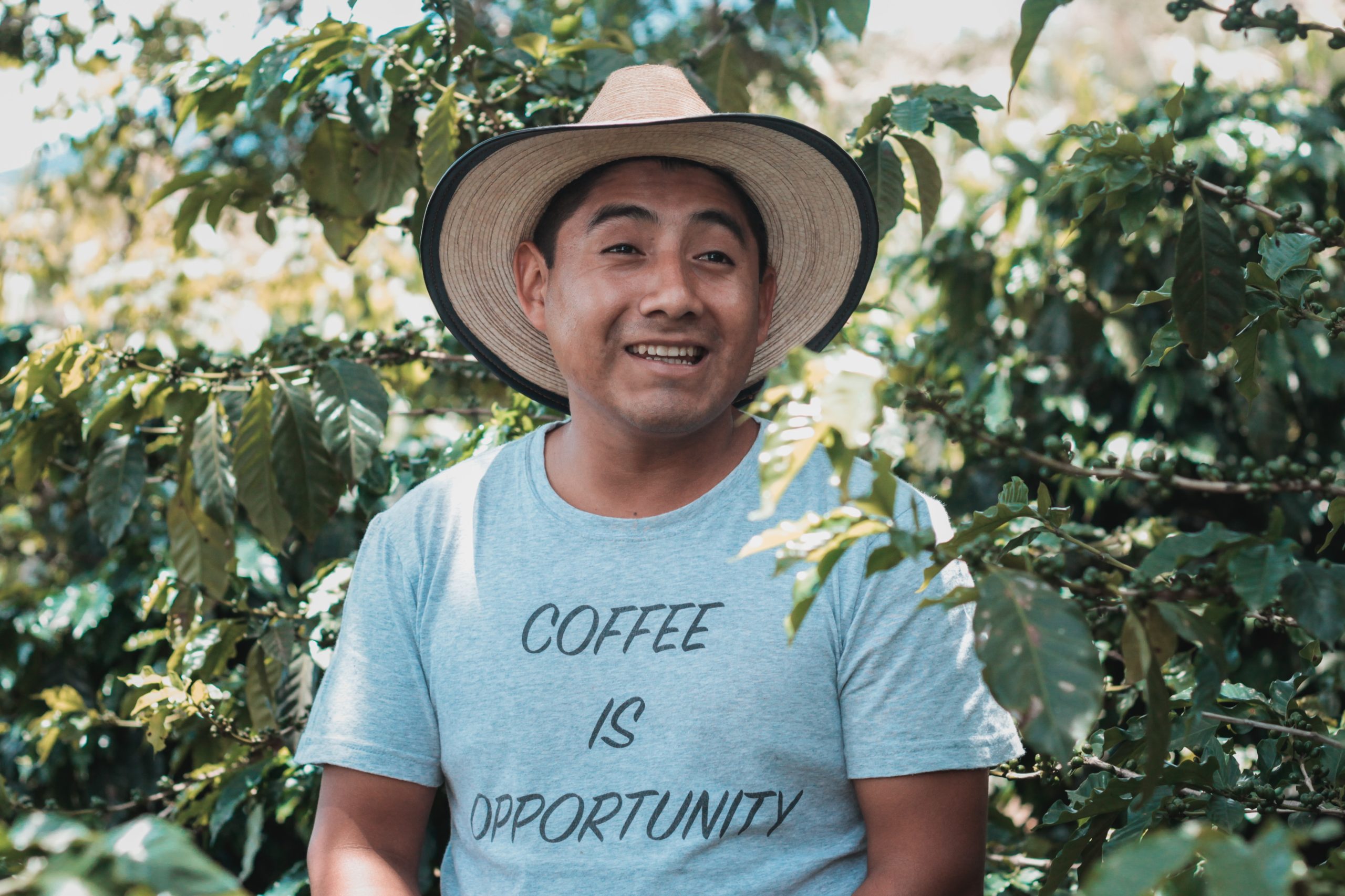Want to know more about direct trade coffee? You've come to the right place.
In this article, you'll learn what direct trade is and what advantages and disadvantages it has.
Let's get started.
What Is Direct Trade?

Direct trade is a coffee transportation model that excludes importers and exporters. In simple terms, the farmer sells their coffee directly to roasters and other coffee producers—there are no intermediaries.
Direct trade is about human relations.
The roaster and the coffee producer must be motivated to cooperate and compromise. Only then will direct trade be beneficial to both parties.
By working with a direct trade model, the roaster can select a specific group of farmers and buy specific coffees from those farmers.
Direct trade roasters pay farmers much more than established international coffee prices, and often even more than they would pay as part of the Fair Trade program.
In theory, here's how direct trade benefits everyone:
1
Coffee producers make more profit
2
Roasters don't have to pay intermediaries
3
It's easier for consumers to trace their coffee's origins
However, some people criticize direct trade.
Critics believe it's only a marketing trick. They point out that it's difficult to know how much a farmer really got for their crop.
The direct trade model is not regulated in any way and rests only on personal agreements between farmers and buyers.
Direct Trade or Fair Trade?
Direct trade coffee is an alternative to the Fair Trade certification.
Fair Trade has disadvantages compared to direct trade:
1
It does not provide direct interaction with coffee producers
2
Individual farms must be part of a cooperative
3
Farmers must pay fees for the right to participate
Direct trade coffee compensates for these disadvantages. With the direct trade model, coffee roasters conduct business directly not only with cooperatives but also with individual farmers.
Of course, direct trade coffee does have its drawbacks. We'll talk more about them in the "Direct Trade Risks" section below.
The Role of Intermediaries in Coffee Production
Importers and exporters play a huge role in the preparation, transport, and sale of coffee.
Exporters usually prepare coffee beans for processing and export. This happens away from farms, closer to shipping ports.
Sometimes exporters pay a farmer or even an entire cooperative before the coffee is grown. Once the farmer delivers coffee to the dry mill, the exporter makes the final payment.
This way, the farmer can continue to engage in production, and the sale risks are shifted to the exporter.
Then importers buy coffee beans, clear them through customs, store them in warehouses, and find a buyer—a roasting company.
Good importers give their customers information about the coffee's origin. Therefore, the roaster learns how the coffee is grown and can build contact with the farmer.
If the importer is a large company, the roaster can get good deals, discounts, and exclusive delivery options.
With this intermediary-based method of trade, the coffee producer is guaranteed to receive payment for their labor. But the payment doesn't always match the level of work.
For example, small-scale farmers in Ethiopia receive less than 10% of the final value of their coffee. They often live below the poverty line.
Why Do Roasters Refuse Intermediaries?
Some coffee producers and coffee roasters prefer to work with a direct trade agreement to remove intermediaries—the importer and exporter.
Coffee roasters do this so they can choose their coffee and know its origin, and farmers do this so they can improve their economic situation.
In a direct trade model, the farmer receives most of the profits for their coffee, and the roaster pays a fairer price, which the two parties agree on.
Direct Trade Risks
The direct trade model is mostly simple and beneficial for both parties. But not everything is as simple as it seems.
To sell coffee beans through direct trade, the farmer or coffee producer has to:
1
Have a sales department and independently search for roasters around the world
2
Send samples directly to roasters
3
Prepare export and import documents
4
Open foreign currency accounts and accept payments from abroad
The roaster also has responsibilities. They have to:
1
Set up payment systems and ensure payment to the farmer
2
Ensure that the coffee reaches its destination
The roaster even takes on certain risks. For example, the roaster must trust that the farmer will provide high-quality coffee beans.
Also, the process of direct trade can be complicated by the laws of the coffee-producing country.
For example, no laws prohibit direct trade in Brazil. But the process is so difficult that it is easier for coffee producers to sell through intermediaries.
And farmers in Kenya have only recently received the right to engage in direct trade, but so far it is difficult to implement.
For direct trade to develop, the process must become easy and transparent: the producer must know what they're selling, the roaster must know what they want, and there must be an avenue for trade.
Conclusion
Some producers and roasters choose direct trade to do business with farmers directly.
Others prefer to use the services of exporters and importers.
But in any form of cooperation, the participants strive to increase the transparency of the process.
This is because consumers want to know where and how their coffee is produced.
Sources
- Fair Trade or Direct Trade? - Green America
- Direct Trade - Wikipedia
